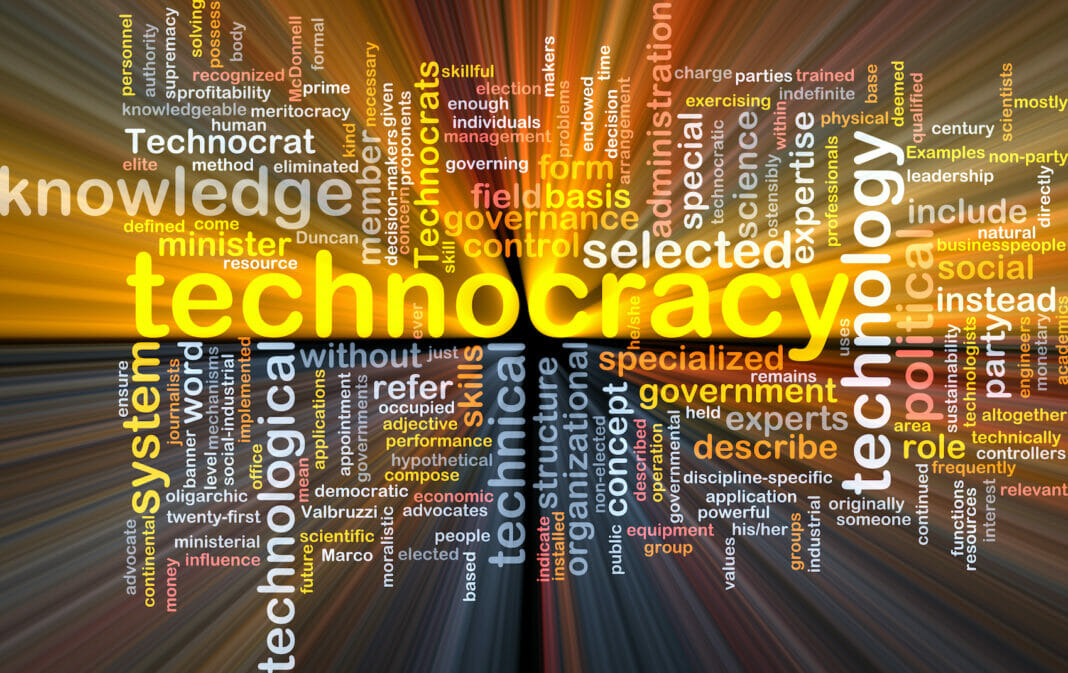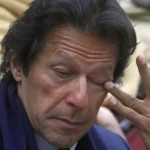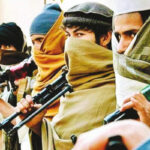“A nation which accept to live a third class life is just a third class nation! If a nation wants to be a called an honourable nation, it must use the option to refuse any kind of policy which is against human dignity! No refuse, no honour! If you do not refuse a bad government, you deserve it all the way”, Mehmet Murat Ildan.
A few days ago, I released an article, which will be published shortly in a couple of magazines. One of the recommendations in the article related to a ‘technocrat government’, a concept that I have been advocating of and on since quite a while now. Having read the article, Haider Raza Mehdi, a journalist and analyst, was highly critical of my suggestions.
Without taking the time to understand the proposal, or examining the background to the concept, he felt ‘shock and disappointed’, at what he saw as an aberration and something that conflicted with some view he may have had. After going into a tantrum, he furthered his position by accusing me of taking a dictation from GHQ.
However, for this information, this is/was my own recommendation and has nothing to do with GHQ and has been proffered in the past and the suggestion is on record since years. It may not be the best idea but its mine. Yet, he accuses me of being influenced by GHQ – obviously, since he could not have known, he has taken it upon himself to assume that, that is how it was.
After, satisfying himself that his assumption is true, he then flies of the handle and complains how I was not inclined to publicly stand against the Army Senior Leadership, like he does so courageously, thereby contributing towards making Pakistan a better country and a more stable nation.
First, everyone has his own way of contributing towards his country. Mine was to partake in 52 kinetic operations wherever my country needed me anywhere in the world. Then, having conducted extensive operations in a militant FATA, clearing huge swaths of areas, I still chose to live here amongst my own people in Tank, Waziristan.
Second, contributing towards Pakistan and its well-being comes in various shades and colours. Everyone is not as powerful as Haider Raza Mehdi who takes on institutions, the Army Chief and the Prime Minister, all at the same time; there are smaller people like me, minnows in a big world, who having done our part and now would like to simply live amongst our own people. These are people who need help in so many ways and means, where I can proudly say I too have made a difference in my own small way. I neither collect funds or search for NGOs and usually never talk about it, making this occasion an exception for obvious reasons, explaining my small contribution in my even smaller area. These people, my people, the Kattikhels, Wazirs, Battanis, Mehsuds, Gandapurs, Kundis etc are also a component of Pakistan and are Pakistan – helping them to me is as much a contribution as the mighty Haider Raza Mehdi feels he is doing for the 230 million people from Washington across the ocean from an incredible distance of over ten thousand kms.
Social media is a force multiplier and very good leveller of platforms. Haider Raza Mehdi has mastered the art, and when holding a mike before him, cannot restrain the lion that lurks within his breast while he roars. He roars with the impunity of a soul unfettered by abundance and principles not obliged to adhere to the conventional sense of enquiry.
Had he asked me as to what I meant, it would have probably resolved the matter, rather than him unnecessarily suffering the shock and awe, he had to endure. In our personal conversation, the good man was kind enough to offer the continuation of any conversation when we are able to do so in the language our parents taught us, not only do I agree, but I would go a step further, and say with great humbleness and utmost respect, that let us suffer each other’s acquaintance only after we have first mastered the principles and the conduct we learnt to grow up with. The former sets the basis for mutual respect and the latter how one should behave in public.
Being as insignificant as I am, I could have ignored the insult, smear and insinuation as just another thrasonical brag of a premediated thought. But, I decided to respond only so that my idea is not held hostage to an accusation which is in fact simply hooting in the wind and that could mislead people into concluding that it is a GHQ thought. It is not.
Thus, I have, in this article, decided to expand upon my recommendation, trying to explain my point of view. It is my belief that a presidential system and a technocrat set-up maybe the answer to Pakistan’s woes and might be the game changer we are looking for. Nevertheless, there is vehement opposition to this view mainly from politicians who may lose their clout if parliaments are done away with in their traditional sense and lose their influence if technocrats are introduced. I do not insist, that I am right and mine is the only idea on the drawing board. I would be very interested to hear, learn and read about other views if there are any.
First of all, to begin with, a technocrat government or concept is not a new idea or an overwhelmingly profound idea.
In 2013, a European Union library briefing on its legislative structure referred to the Commission as a “technocratic authority”, holding a “legislative monopoly” over the EU law-making process. The briefing suggests that this system, which elevates the European Parliament to a vetoing and amending body, was “originally rooted in the mistrust of the political process in post-war Europe”. This system is unusual since the Commission’s sole right of legislative initiative is a power usually associated with Parliaments.
The former government of the Soviet Union has been referred to as a technocracy. Soviet leaders like Leonid Brezhnev had a technical background. In 1986, 89% of Politburo members were engineers. Leaders of the Chinese Communist Party used to be mostly professional engineers. According to surveys of municipal governments of cities with a population of 1 million or more in China, it has been found that over 80% of government personnel had a technical education. Under the five-year plans of the People’s Republic of China, projects such as the National Trunk Highway System, the China high-speed rail system, and the Three Gorges Dam have been completed because of technocrat governments. During China’s 20th National Congress, a class of technocrats in finance and economics have now been replaced in favour of high-tech technocrats who are also financial experts and have made China the fastest growing economy in the world.
Several governments in European parliamentary democracies have been labelled ‘technocratic’ based on the participation of unelected experts (‘technocrats’) in prominent positions. Since the 1990s, Italy has had several such governments (in Italian, governo tecnico) in times of economic or political crisis, including the formation in which economist Mario Monti presided over a cabinet of unelected professionals. The term ‘technocratic’ has been applied to governments where a cabinet of elected professional politicians is led by an unelected prime minister, such as in the cases of the 2011-2012 Greek government led by economist Lucas Papademos and the Czech Republic’s 2009–2010 caretaker government presided over by the state’s chief statistician, Jan Fischer. In December 2013, in the framework of the national dialogue facilitated by the Tunisian National Dialogue Quartet, political parties in Tunisia agreed to install a technocratic government led by Mehdi Jomaa.
The article “Technocrats: Minds Like Machines” states that Singapore is perhaps the best advertisement for technocracy: the political and expert components of the governing system there seem to have merged completely. This was underlined in a 1993 article in “Wired” by Sandy Sandfort, where he describes the information technology system of the island even at that early date making it effectively intelligent. (*From various publications).
Coming to Pakistan, we are now living in the most difficult time in our history. Our economy is almost wiped out, national stability is wobbly and political polarisation is at its worst. I am convinced if there is a free and fair election, PTI will be in power with a 2/3rd majority and will be in a position to undertake the reforms the country needs today to recover from the horrible situation we have out ourselves in.
These reforms include the judicial reforms, de-politicisation of the police, education, amending the Constitution, creating more provinces, introducing merit, separating religion from politics, accountability across the board, deciding on the system of governance and strengthening institutional autonomies amongst many other reforms.
However, though PTI, when and if allowed to come to power, may be in a position to undertake these reforms, yet, Pakistan’s problems have gone beyond political solutions and need very firm corrective measures. Since PTI or any political party works on the basis of give and take there are too many compromises that have to be made which will not allow such reforms to take root or it will take too long to develop a political consensus on any reform needed. As such, in keeping with Pakistan’s problems there is a need for a supra-constitutional body to be put into place, mandated and empowered to undertake these reforms. One of the softer ways of doing this is to install such a body under a PTI led government which is what I was suggesting.
Now, the popular question is who will select such a body and how will we put such a band of expertise together. The quickest method is to expand upon the NSC, which is the least painful, already exists and has constitutional propriety. Suitable a political people can be inducted. This may not be acceptable to some people so another method could be to arrange a national dialogue where everyone is represented and a council is established that then short lists a dozen people who are technical experts in their respective fields. After all, we do have a process of selecting a care-taker government through a consensus of all political parties albeit, the present selection did not go in accordance with popular demands. However, oversight could be put in place through a judicial committee or the judiciary can undertake the task directly itself. The quickest and easiest would be to have the establishment, bureaucracy and Judiciary form a committee but all three have lost credibility and the people will not be satisfied by any selection they do. Yet, I am sure that all three institutions can be compelled to put their best foot forward and in the better interest of the country do the needful without prejudice or malice to none.
I also feel that the nature and character of the people that make up this land of the pure, Pakistan, is not compatible to a parliamentary system. Every political activity is reduced to an auction and all elections become a loot-sale. Interest of the State is set aside as personal benefits and individual payback become the source of political decisions. This is why we are where we are. The presidential system puts a stop to this and it is the system that the Quaid put on record that he wanted and advocated. Giving examples of military dictators to compare it with what is being suggested does not hold good for any argument and is self-defeating. My recommendation is to let the technocrat government define a system of government and put it up for a referendum and let the people of this country decide what they would prefer to have.
Lastly, is the question of the Constitution. People hold it up as a sacrosanct document and now have managed to legislate laws where one can be found guilty of treason if he violates the Constitution. The Constitution was amended by its author, himself, on numerous occasions. The Parliament has amended the Constitution in pursuance to its own convenience. NAB laws have been changed to benefit those amending the Constitution etc. In other developed countries there is a Supreme Judicial Council that strikes down Black Laws or amendments to the Constitution that do not appear to be compatible to moral, ethical principles or the public good.
Nevertheless, it must be understood that the Constitution is a document primarily designed to protect citizens from their own government. Chapter 1 very clearly states the fundamental rights a free citizen enjoys. Yet these are violated in every way with impunity both in letter and spirit. This then becomes the biggest case for treason. On the other hand, selecting people under article 62 and 63, to represent the nation, is the biggest joke and remains a contradiction. Most parliamentarians therefore are in violation and should be subjected to treason charges. The federal government withholding funds from KP and violating devolution of power is another case fit for treason charges as many more such as violating defined red lines in taking loans etc.
The point is that the document is neither sacrosanct nor is it treasonous to criticise it or violate it. Nowhere else in the world is treason linked to the constitution and instead it has and is always been about colluding with the enemy against the State. It is strongly suggested that the law making it treasonous in violating the Constitution be revisited before it affects everyone who stands in violation of it on a routine basis. The treasonous portion has been politicised and now anyone from the opposition can be subjected to the law for speaking up and or his mind and charge sheeted.
The people are sovereign, and the majority must have access to governance through their representatives. The constitution or system of governance, notwithstanding – it is always the wellbeing of the people which must remain the objective of the State first and foremost. Everything else is secondary to this. Clinging on to precedent instead of merit, convention instead of propriety, a practice instead of a solution will give us arguments that quote constitutional propriety that focuses on vested interests and a democracy held hostage by our skewed parliamentary system. The ones who pay for this aberration are the people first and the State second.
Lt. General Tariq Khan (Retired), an erudite general from Pakistan’s Armored Corps and a decorated War Veteran, is an expert on critical issues related to Terrorism & Insurgencies. General Tariq Khan during the Battle of Bajaur, transformed and re-shaped Frontier Corps into a relentless fighting force and raised FC’s own special forces popularly known as SOG. Commanded and led major operations in FATA from the frontline, his model on counter-insurgency is still applied to this day.
Lt. General Tariq Khan (Retired) leads CommandEleven’s Board of Advisors as our Patron-in-Chief.








